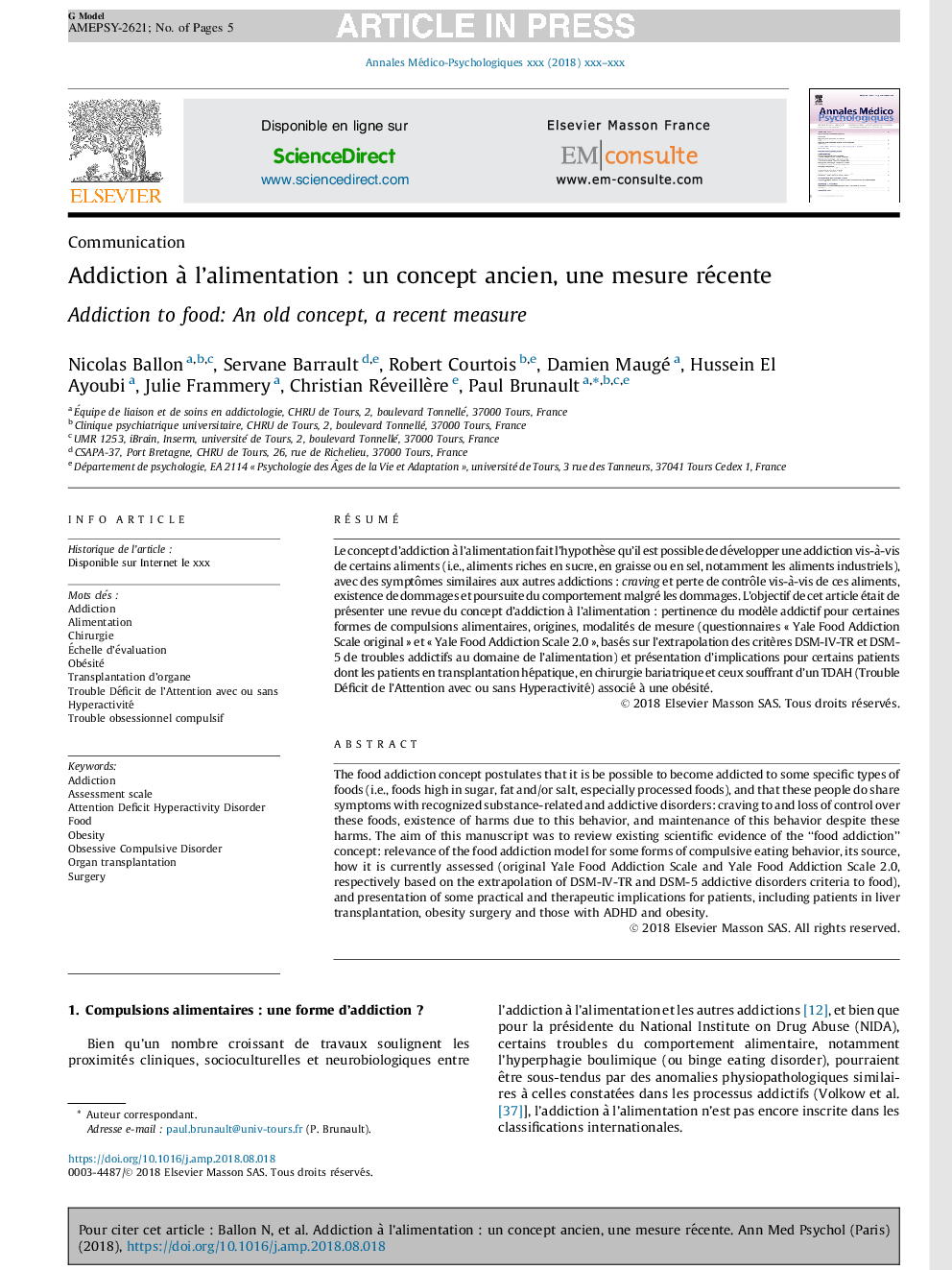| Article ID | Journal | Published Year | Pages | File Type |
|---|---|---|---|---|
| 11008067 | Annales Mdico-psychologiques, revue psychiatrique | 2018 | 5 Pages |
Abstract
The food addiction concept postulates that it is be possible to become addicted to some specific types of foods (i.e., foods high in sugar, fat and/or salt, especially processed foods), and that these people do share symptoms with recognized substance-related and addictive disorders: craving to and loss of control over these foods, existence of harms due to this behavior, and maintenance of this behavior despite these harms. The aim of this manuscript was to review existing scientific evidence of the “food addiction” concept: relevance of the food addiction model for some forms of compulsive eating behavior, its source, how it is currently assessed (original Yale Food Addiction Scale and Yale Food Addiction Scale 2.0, respectively based on the extrapolation of DSM-IV-TR and DSM-5Â addictive disorders criteria to food), and presentation of some practical and therapeutic implications for patients, including patients in liver transplantation, obesity surgery and those with ADHD and obesity.
Keywords
Related Topics
Health Sciences
Medicine and Dentistry
Psychiatry and Mental Health
Authors
Nicolas Ballon, Servane Barrault, Robert Courtois, Damien Maugé, Hussein El Ayoubi, Julie Frammery, Christian Réveillère, Paul Brunault,
